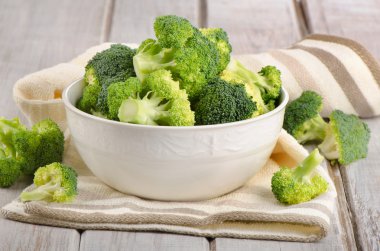Your eyes are among the most sensitive organs, and taking care of them is vital to maintaining not only vision but overall well-being. As the saying goes, “You are what you eat,” and this couldn’t be more true when it comes to eye health. A balanced diet rich in nutrients can make a world of difference in how your eyes function and age.
According to the Centers for Disease Control and Prevention (CDC), 90% of blindness related to diabetes is preventable. While regular check-ups and proper medical care are essential, so is incorporating specific foods into your diet to ensure that your eyes remain healthy throughout your life. Let’s explore how certain foods and overall lifestyle habits can help you protect and even improve your vision.
Understanding Eye Health
Your eyes need a variety of nutrients to function correctly. Key vitamins and minerals such as Vitamin A, C, E, zinc, and omega-3 fatty acids have been linked to eye health, reducing the risk of age-related eye diseases such as cataracts and macular degeneration. While genetics and aging are inevitable factors, you can significantly influence your eye health by paying attention to what you eat.
Foods like almonds, broccoli, carrots, eggs, kiwi, salmon, and leafy greens have been proven to promote eye health. Let’s take a deeper look into how these foods benefit your eyes.
Almonds: A Vitamin E Powerhouse
Almonds are rich in Vitamin E, an antioxidant that protects your eyes from harmful free radicals. These free radicals can damage the tissues in your eyes, leading to conditions like cataracts and age-related macular degeneration (AMD). A small handful of almonds a day provides a healthy dose of this vital nutrient, helping to slow the progress of such conditions.
Broccoli: A Multi-Nutrient Veggie

Broccoli contains a combination of vitamins A, C, and E, all crucial for maintaining good vision. Vitamin A is key for low-light vision and preventing dry eyes, while Vitamin C helps combat oxidative stress and protects your eye cells. This crunchy vegetable also contains lutein and zeaxanthin, antioxidants that protect your eyes from damaging blue light emitted by screens and other digital devices.
Carrots: The Classic Vision Booster
It’s not just a myth—carrots really do help your eyes. Rich in beta-carotene, a precursor to Vitamin A, carrots promote good vision, particularly in low-light conditions. This vitamin is essential for the functioning of the retina and other parts of the eye. Beta-carotene also helps prevent eye infections and dry eyes, making it a must-have in your daily diet.
Eggs: A Source of Lutein and Zeaxanthin

Eggs are packed with two key nutrients for eye health: lutein and zeaxanthin.
These antioxidants have been shown to reduce the risk of cataracts and age-related macular degeneration. The yolk also contains zinc, which helps maintain the retina and may reduce the risk of night blindness. Incorporating eggs into your diet can be an easy and delicious way to protect your vision.
Kiwi: A Vitamin C Powerhouse
Kiwi is one of the richest sources of Vitamin C, an antioxidant that is vital for the health of your blood vessels, including those in your eyes. Regular intake of Vitamin C-rich foods has been associated with a reduced risk of cataracts. Plus, the fiber and other nutrients in kiwi contribute to overall eye health and can help regulate blood sugar levels, which is especially important for people at risk of diabetes-related eye diseases.
Salmon: Rich in Omega-3 Fatty Acids
Salmon is packed with omega-3 fatty acids, which are essential for maintaining the health of your retina. These healthy fats help prevent dry eye syndrome by supporting the oil layer of your tear film, which keeps your eyes moisturized. Omega-3s also protect against age-related macular degeneration and glaucoma.
Including salmon in your diet at least twice a week can provide significant eye health benefits.
Leafy Greens: A Vision-Saving Superfood

Leafy greens like spinach, kale, and collard greens are some of the most nutrient-dense foods you can eat for your eyes.
They are rich in lutein and zeaxanthin, which filter out harmful high-energy blue light and protect your retina. Consuming these greens regularly has been shown to reduce the risk of cataracts and macular degeneration.
Diabetes-Related Eye Health: Prevention is Key
As the CDC highlights, 90% of blindness caused by diabetes is preventable. Managing your blood sugar levels, blood pressure, and cholesterol can go a long way in protecting your eyes from complications like diabetic retinopathy. Diabetic retinopathy occurs when high blood sugar levels damage the blood vessels in your retina, leading to vision loss.
Eating a balanced diet, rich in the foods mentioned above, can help regulate blood sugar levels, preventing spikes that can damage your eyes. Regular exercise, maintaining a healthy weight, and controlling your diabetes through proper medical care are also crucial in preventing blindness.
Conclusion
Your eyes are a reflection of your overall health. By nourishing your body with a diet rich in vitamins, antioxidants, and healthy fats, you can protect your vision and reduce the risk of age-related eye conditions. Almonds, broccoli, carrots, eggs, kiwi, salmon, and leafy greens are just a few examples of foods that support optimal eye health.
Combined with regular check-ups and healthy lifestyle choices, you can help ensure that your vision remains sharp for years to come.













More Stories
Exercising Can Help COPD
3 Foods That Help Kidney Health & Function
It’s Your Gut – What Are Your Doing With It?